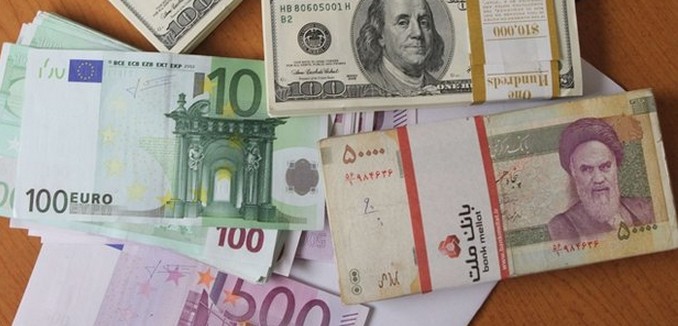More than 30 former government and military officials wrote an open letter on Tuesday urging the Financial Action Task Force (FATF), a global watchdog supported by more than 30 Western countries focused on ensuring the integrity of the international financial system, to “remain vigilant about the risks Iran’s activities pose to the security of the global financial system.” The letter also called on the task force to “reaffirm its call for [countries] to implement effective counter-measures to ensure the integrity of the global financial system in the face of continued Iranian aggression and recklessness.”
Among the signatories were former Senator Joe Lieberman; former acting CIA director Michael Morell; Dennis Ross and Ray Takeyh, two former State Department officials under President Barack Obama; former Mossad chief Tamir Pardo; Mark Dubowitz, the executive director of the Foundation for Defense of Democracies; former foreign ministers from Italy and Poland; and Josh Block, the CEO of The Israel Project (which publishes The Tower).
Iran and North Korea are currently the only two countries on the FATF’s counter-measures list, which documents the countries that pose the gravest risk to the international financial system. This designation means that the FATF calls on its members and other jurisdictions “to apply counter-measures to protect the international financial system from the on-going and substantial money laundering and terrorist financing risks emanating from those jurisdictions.” Last February, for example, the FATF stated that Iran’s “failure to address the risk of terrorist financing” poses a “serious threat … to the integrity of the international financial system.”
In the wake of last year’s nuclear deal, Iran is attempting to re-integrate itself into the financial system and get removed from the FATF listing. The open letter argued that despite Iranian claims to have reformed its financial practices, Tehran has still “failed to address its deficiencies in anti-money laundering enforcement and combating the financing of terrorism,” so the FATF should therefore continue to call on its members to maintain and strengthen counter-measures against Iran.
As examples of Iran’s continued support for terrorism, the officials cited Iran’s decision last month to renew its support for Palestinian Islamic Jihad, and its commitment last year to increase its support for its terrorist proxy Hezbollah. The State Department’s latest annual report on global terror reiterated that Iran remains “the foremost state sponsor of terrorism,” and the U.S. continues to designate the entire Iranian financial sector as a jurisdiction of primary money-laundering concern.
The long-term danger in removing Iran from the counter-measures list without the country changing its conduct is that financial institutions may “begin to view Iran as a safer jurisdiction than the actual underlying conduct presents to them,” former Treasury Department official Eric Lorber said in a conference call with reporters last week. “Iran should not be able to integrate back into the international financial system without a change in its underlying behavior and a change in the risk that it actually poses to the international financial system.”
Iran has complained over the past year that the economic benefits of the deal have not yet been realized due to the reluctance of multinational organizations to invest in Iran despite some sanctions being lifted. Some Iranian officials, including Supreme Leader Ayatollah Ali Khamenei and Central Bank of Iran governor Valiollah Seif have threatened that the deal could collapse if Iran doesn’t receive more investment and isn’t given further sanctions relief.
However, many financial sanctions were imposed on Iran before nuclear sanctions were imposed, as a reaction to Iran’s money laundering and terror financing. The New York Times editorial board asserted in April that Iran’s corruption was responsible for the country’s economic problems. Similarly, Stuart Levey, Obama’s former undersecretary of the treasury for terrorism and financial intelligence and now the chief legal officer of HSBC Bank, wrote in The Wall Street Journal in May that because Iran remained a risk for “financial-crime risks and the underlying conduct,” his company has “no intention of doing any new business involving Iran.” The Journal, CNBC, and other outlets reported a few days later that other European banks were hesitant to do business with Iran because of the risks.
An official of the International Monetary Fund also told Iranian officials in May that “the best thing the government [of Iran] can do, and the banks can do, is to bring those standards up to international levels and try to reassure foreign partners, banks and otherwise that Iran’s banks are safe to deal with.”
Despite the limitations that corruption-related sanctions impose on Iran, nuclear-related sanctions relief has provided the Iranian economy enough of a boost to possibly grow by four percent per year for the next five years. The Central Bank of Iran earmarked much of that sanctions relief for military spending, which is expected to grow by 90 percent next year.
[Photo: Mehr News ]




